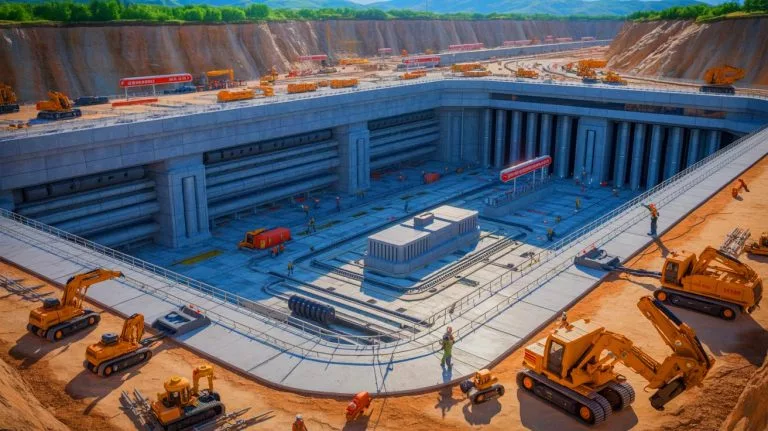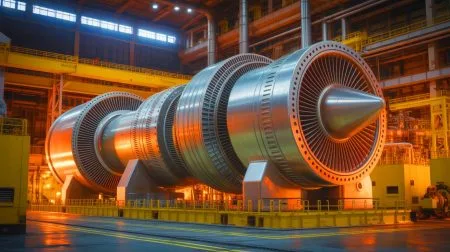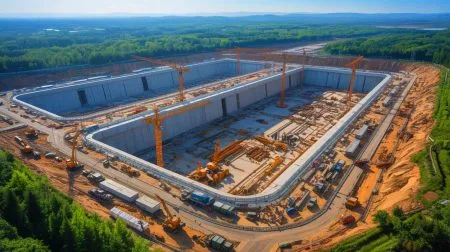| IN A NUTSHELL |
|
China’s recent unveiling of a vast underground military command center near Beijing is making waves in global geopolitical circles. Satellite images reveal that this massive construction could potentially become the largest of its kind, signaling China’s strategic ambitions to rival the United States. This development underscores China’s long-term military vision, highlighting a sophisticated level of technological advancement. As countries in the region and beyond reassess their security strategies, the potential for geopolitical tensions looms. Understanding the multifaceted implications of this project is vital as the dynamics of international relations continue to evolve, influenced by this significant Chinese undertaking.
China’s Ambitious Military Vision
China’s ambitious military project reflects a grand vision reminiscent of Cold War-era strategies. The construction of this expansive underground command center marks a significant milestone in China’s military development. Since the 1980s, China’s specialized teams have focused on creating underground shelters capable of withstanding formidable threats. This initiative draws inspiration from Cold War tactics utilized by the Soviet Union and Germany, who invested heavily in bunkers and subterranean bases. Now, China is elevating this concept to unprecedented levels, with the aim of building the largest underground military command center in history.
The scale of this project is immense, showcasing China’s determination to secure its military assets against potential threats. The rise in geopolitical tensions, particularly in Asia, underscores China’s commitment to strengthening its defense infrastructure. This development highlights the evolving nature of military strategies in the 21st century, where technological advancements and strategic positioning are crucial for national security.
Implications for Global Security
The construction of China’s underground military complex carries significant implications for global security. As China expands its military capabilities, countries worldwide are reassessing their security strategies. This development represents more than just military might; it signifies a shift in the balance of power in Asia and beyond. The strategic significance of this project cannot be overstated, as it may influence military alliances and defense strategies worldwide.
China’s actions could prompt reactions from other major powers, potentially leading to an arms race reminiscent of the Cold War. The United States, in particular, may feel compelled to enhance its military presence in the region to counterbalance China’s growing influence. This scenario raises critical questions about the future of international relations and the potential for either conflict or cooperation in addressing shared security challenges.
Technological Sophistication and Strategic Depth
At the core of China’s military project lies a focus on technological sophistication and strategic depth. The underground command center is expected to feature advanced technologies, from state-of-the-art communication systems to cutting-edge defense mechanisms. This technological prowess underscores China’s broader ambitions to become a leading military power, capable of rivaling the technological advancements of other major military forces like the United States.
China’s investment in subterranean infrastructure ensures the resilience and sustainability of its military capabilities. This approach not only protects its assets from conventional threats but also positions China as a formidable force in potential future conflicts. This development marks a new chapter in China’s military history, characterized by innovation and strategic foresight.
Regional Reactions and Future Prospects
The revelation of China’s underground military complex has elicited varied reactions across the region. Neighboring countries are closely monitoring the situation, with some expressing concern over potential implications for regional stability. Others are considering strategic partnerships and alliances to counterbalance China’s growing military presence. This development has undoubtedly sparked a reevaluation of defense strategies across Asia, as nations seek to navigate the shifting geopolitical landscape.
Looking ahead, the future prospects of this project will hinge on China’s ability to manage its regional relationships and address international concerns. The success of this undertaking could redefine China’s role on the global stage, potentially leading to new alliances and diplomatic engagements. However, it also poses important questions about the potential for conflict and cooperation in a world increasingly defined by military prowess and strategic competition.
As China’s military ambitions continue to unfold, the world observes closely. The construction of this underground command center is a clear indicator of China’s determination to assert its influence and secure its interests. In an era of rapid geopolitical changes, how will other nations respond to China’s growing military might? Will this development lead to increased global cooperation or heighten tensions among the world’s powers?
Did you like it? 4.4/5 (29)







